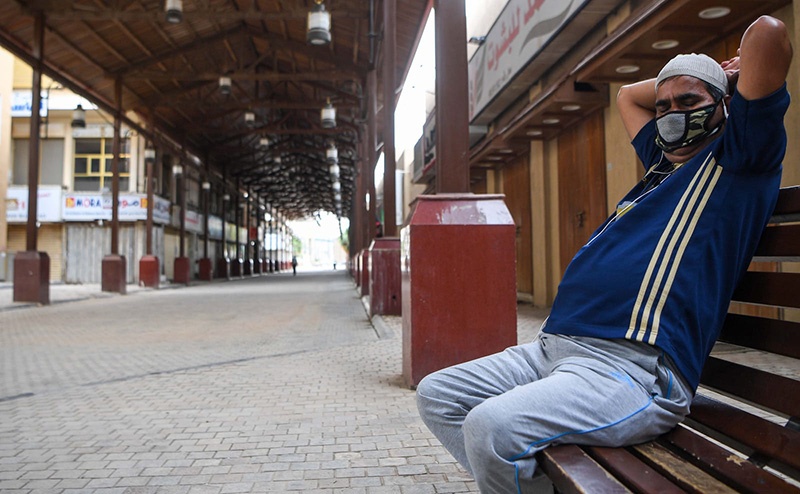
By Shakir Reshamwala
Ramadan is a time of piety and prayers, fasting and feasting, and spending time with family and friends. But this year the holy month will be a surreal experience, with all mosques closed, most shops shuttered, a 16-hour curfew and people confined at home. For retailers, business owners and restaurants, this Ramadan will be a bleak one; people are holding on to their money, while others haven't been paid their salaries or only partially.
The coronavirus outbreak and the resulting lockdown have also disrupted many of Kuwait's unique Ramadan traditions that have been observed by generations of citizens and residents of this country as a source of comfort and belonging. These traditions all involve gathering in some form, especially during the night, but a ban on gatherings has put paid to these customs. Even the mainstay of Kuwait's social life - gathering in diwaniyas - has been banned.
The first victim of social distancing was graish - the traditional pre-Ramadan feast when family members and even neighbors gather before the onset of the fasting month. In the olden days, the women of the house would empty the larders of their homes of foods that are not usually eaten in Ramadan, and extended families would gather to partake in the potluck. In recent years, the food was usually ordered from restaurants and the gatherings were smaller, but with society frowning on get-togethers these days, the practice was abandoned.
Another Ramadan tradition - Girgian - will likely not take place this year. Girgian is marked on the 13th, 14th and 15th of Ramadan, when children go 'trick or treating' to collect candies and nuts around the neighborhood. Lately, the simple confectionery of yore was replaced by gourmet chocolates and exotic nuts housed in brand-name bags and pouches that were often more expensive than their contents. But with children not even going to school nowadays and parents fearful of exposing them to any infection, kids going door to door seems to be a remote possibility.
Like Girgian, the ghabqa - a gathering of family and friends in the evenings of Ramadan - had become a lavish corporate affair, where companies invited clients and employees along with their families for a night of fun and feasting, with the media in attendance too. With a nighttime curfew in place and the ban on gatherings, one can be sure ghabqas are out of fashion this year.
The firing of the iftar cannon - signaling to the faithful it is time to break the fast - takes place every day of Ramadan at the beautifully restored Naif Palace in Kuwait City and is broadcast live on Kuwait TV and radio. The firing of the cannon by uniformed guards in red livery used to attract dozens of families daily in the open yard of the palace, which is set up to resemble pre-oil Kuwait, complete with vintage cars, artisans and children in traditional garb. The firing may still take place this year, but one can be sure the yard will be eerily empty.
Though not a social tradition, congregation tahajjud prayers during the last 10 nights of Ramadan are observed in most mosques across the state. The popularity of qiyam al-layl prayers had skyrocketed in the past two decades, especially at the Grand Mosque. Thousands every year attend the nightly prayers, with well over 100,000 worshippers converging on Kuwait's largest mosque on the night of the 27th of Ramadan. But mosques have been shut in Kuwait for more than a month, with even the five obligatory prayers not taking place in congregation, so holding mass supererogatory prayers - like taraweeh and tahajjud - is out of the question, along with Eid prayers.
Of course, all of the abovementioned traditions and rituals are not essential to observe the Ramadan fast. One can remain at home and fast, eat simply, and pray with the family or individually. Iftar will not be served in tents outside mosques this year, so seeking out and helping poor people dependent on food handouts in the neighborhood is a must.
Perhaps the coronavirus pandemic can be a blessing in disguise, stripping away the rampant commercialization of Ramadan witnessed in recent years and returning the holy month to what it actually is - an act of worship, empathizing with the less-fortunate and exercising self-discipline.









